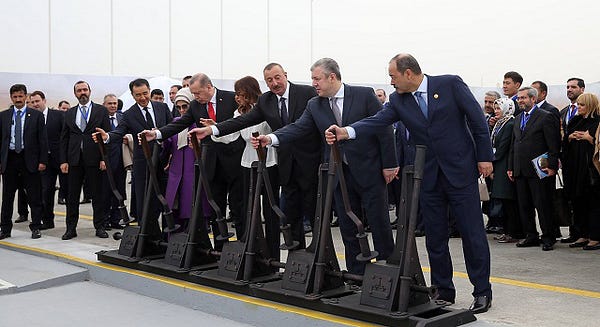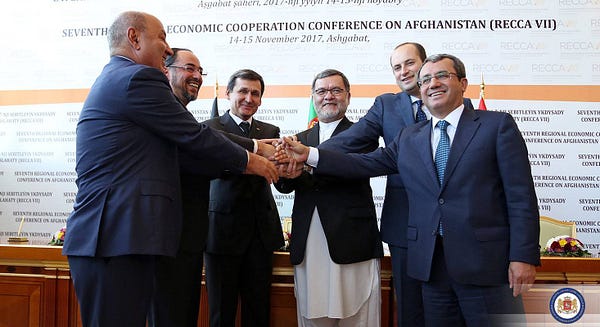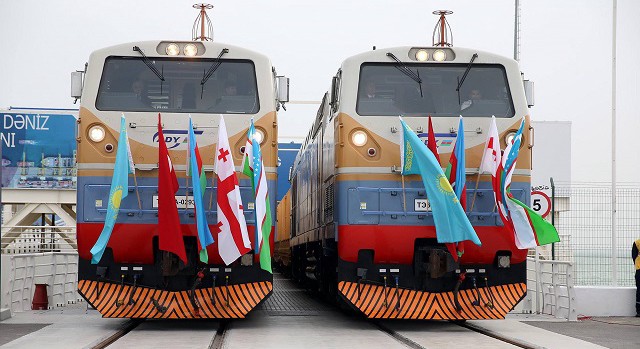Georgia, due to its strategic geographic location at the intersection of the eastern, western, northern and southern roads, is growing into the regional hub for East-West trade and transportation by joining multiple international projects and expanding bilateral free trade agreements with all major regional countries.
Most importantly, Georgia has the most business friendly, reliable, and predictable business environment in the region. Georgia’s favorable tax regime is the 9th least burdensome in the world, according to World Economic Forum. This is a significant enticement to both local and international investors.
The Georgian government is implementing a four-point strategy that aims to attract investment by modifying income tax laws favorably for most businesses, streamlining governance to drive efficiency, and accelerating critical infrastructure projects.

The month of November saw the initiation of two big regional transit projects:
The Baku-Tbilisi-Kars (BTK) Railway route launched to become a key link in the modern Silk Road Railway that aims to carry goods between Beijing and London via Central Asia and Caucasus. The opening of the 846-kilometer (525 miles) route marks the completion of a 10-year project providing the quickest rail services carrying cargo from Asia to Europe in just 12 to 15 days. Initially the railway is expected to carry nearly 1 million passengers and 6.5 million tons of freight annually before unlocking a freight transportation potential of up to 50 million tons per year.
The Prime Minister of Georgia Giorgi Kvirikashvili stated that the railway would “change the current economic reality, providing totally new economic opportunities in the region and beyond… It can be openly said that a new Eurasian bridge has been found today that will connect not only our economies but also our citizens and improve and boost their welfare,” said the Prime Minister Kvirikashvili at the opening ceremony in Baku. The event was also attended by the Presidents of host Azerbaijan and Turkey, and the Prime Ministers of Uzbekistan and Kazakhstan.

Georgia has also become part of another significant international project — the Lapis Lazuli Corridor, a trade and transport route that connects Europe and Asia by road, rail and sea thanks to a long-awaited new international deal between five nations — Afghanistan, Turkmenistan, Azerbaijan, Georgia and Turkey.
The Lapis Lazuli Corridor will begin in Afghanistan’s northern Aqina port in the Faryab province and Torghandi in western Herat province and will run through to Turkmenbashi in Turkmenistan. From there it will cross the Caspian Sea and will link the Azerbaijani capital Baku to Tbilisi and Georgia’s Black Sea ports of Batumi and Poti. It will then connect with Kars in eastern Turkey before linking to Istanbul and Europe.
“The agreement will significantly contribute to the development of cooperation between the members of the project in the areas of trade and transport and beyond. We are convinced that an important part of the region’s future lies in new corridors and projects like Lapis Lazuli,” asserted Foreign Affairs Minister of Georgia Mikheil Janelidze.

